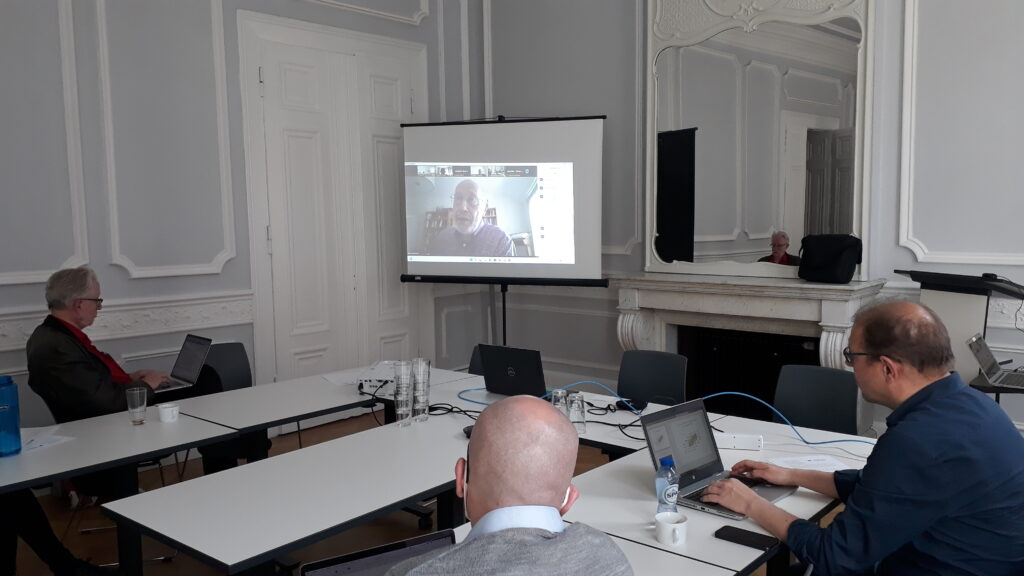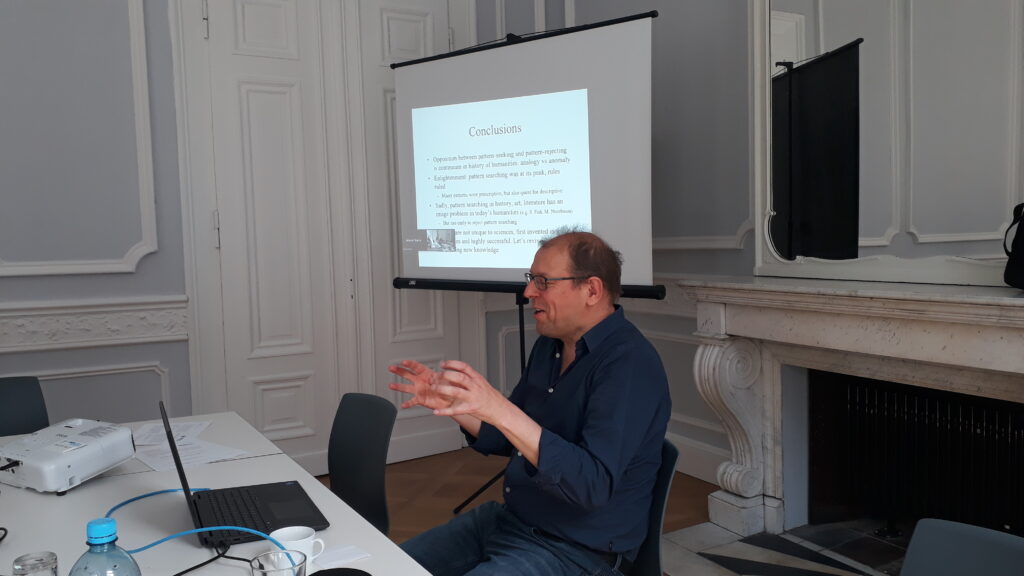“… they call me a free speech fundamentalist” (Frederik Stjernfelt)

The immediately obvious insight that the Enlightenment now workshop, organized by Frederik Stjernfelt and Steve Fuller at c:o/re (21.04.2022), provided is that the Enlightenment was as complex and historically eclectic as its approaches in intellectual history are. Not only was consensus difficult to find in the rich discussions that the workshop generated, but it felt that each talk was a world of its own. Yet, at the same time, all speakers discussed the Enlightenment in a distinctively recognizable way. Frederik Stjernfelt historically unfurled the first case of full press freedom. Jonathan Israel scholarly discussed Spinoza’s role in ushering the Enlightenment. Observing two contrasted tendencies in the long history of Western philosophy, Rens Bod remarked that “the exceptional can not exist without patterns”. Steve Fuller shared his ideas for understanding modernity by writing theatre plays. Pondering on the contemporary social conditions, Cheryce von Xylander observed that a common interest of these approaches on the Enlightenment is how cognition is imagined.
An uninterrupted thread that the workshop arguable followed is the concern of the Enlightenment to ‘fix’ how it upset the assumptions of Western metaphysics. Why, though? It seems that to this day, cultural taboos still bear on what philosophical and scientific inquiry can (or rather, may) pursue unhindered, without upsetting public opinions. “In Denmark they call me a free speech fundamentalist,” said Frederik Stjernfelt, while also remarking that free press does not come with benefits only, as we can clearly see in post-truth attitudes.



